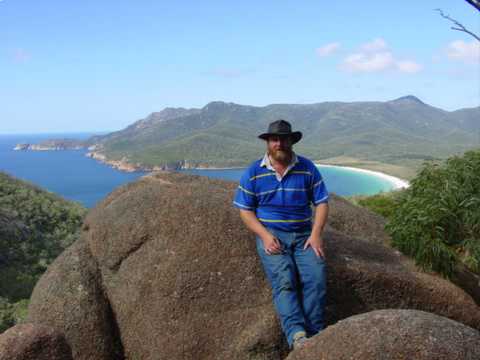Facilitation and Evaluation part 2

To Be an Elf
the end is here!
My Final Thoughts
I have enjoyed this course. From the start I knew I knew a lot, but if you can not learn from anything or something then I don't think you should be in the teaching/training/facilitation game.
What is my biggest discovery?
Interesting question.
In 2002 I went through the discovery game called The NSW Quality Teacher Award. Part of it was about reflecting on my teaching. It was an enlightening process (BTW I got an award). At the time I made a statement I still live by: If I stop learning - I should be dead.
And I still maintain it is true.
What has that to do with an eLF?
Everything!!!!!
I have been involved in online delivery for about 8 years, so some say I know all about it. I get asked to be a mentor on panels for just about every form of online delivery technology that comes out.
But I don't always accept!
How do I really feel?
This year - mostly ahhhh!!
I am drowning in technology.
How do I program this new HDD TV recorder? I get a call from a friend - how do I get my new adobe stuff to work on my new PC? (That was why I missed the last session. What I thought would take 2 hours took over 3!) and yes I did get the recorder to work - now how to edit the recording so as only to keep the bit I want rather than the extra 2 hours worth. O well some thing more.
Back to the question. TALS, moodle, mahara (sounds like a desert) and some other new thing that Beth Hobbs showed me yesterday.
More and more to learn.
But, what is it all about?
Achieving a result - hopefully successful - for the student.
What should I use? - what works for them!
Do I want the new technology? maybe
Do I have to be perfect with it before I use it? no - lets give it a go.
How did I learn? by playing
Did I have time? no - but I tried to make the most of what I could get.
Biggest lesson? on reflection, I was spending up to 3 or 4 times the amount of effort I thought I was doing per student. This was big!!!!
My main evaluation tool? the telephone. I would ring the student and ask how I could improve it? they are usually truthful - I had one person tell me it was all crap! (he had just failed and did not quite do any work!) - but I still looked at the material and changed from totally using wikiversity to including a textbook.
What did I enjoy most about this course? The Monday ( and occasional Thursday) get together on Adobe Connect.
My biggest appreciation? The Facilitators: Kerrie, Deb, Jenny and Phil - I, at least, appreciate what you did during the semester. I felt for you every time the technology played up.
Why do we do it? For the learner. For our learning.
Will I keep doing it? you bet ya. I am already collecting my students for next year.
Will it be better than this year? I hope so.
What is the most important bit to know? ...
... that we, the facilitators should be driving the technology.
... ... that we should be leading by example and taking the learning environment forward...
... ... THAT is the goal. To use the tool to get the student to participate.
Should we be comfortable? Not totally. To be comfortable brings complacently, bring laxity, and short cuts. Therefore the learner can suffer.
Thanks guys - twas good. if only a few more could finish!
also posted on the WSI eLF4Us wiki - today 17/12/2009
I made it - I got to the end.
But I still don't have pointy ears
and definitely will not be wearing the green tights.


